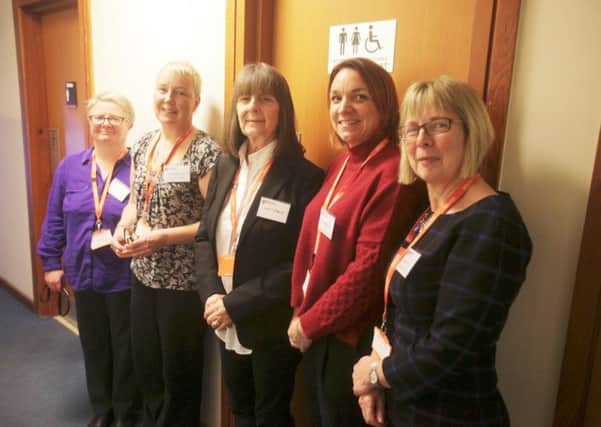New guide to accessible loos for the disabled


The free guide has been produced by researchers at Newcastle University, who worked with Carers Northumberland.
It is aimed at businesses and anyone who provides toilets for public use and sets out a range of low cost and easy to implement changes they can make to ensure toilets are accessible for people with additional needs and their carers.
Advertisement
Hide AdAdvertisement
Hide AdTo develop the sixteen-page guide, researchers talked to disabled people and their carers, as well as volunteers from a range of organisations across Northumberland including Age UK, the Alzheimer’s Association and BID Services Morpeth, who support people who are deaf, hard of hearing, are visually impaired or have a dual sensory loss.
Professor Janice McLaughlin, Professor of Sociology at Newcastle University, said: “Toilets are not a luxury – they are a basic right. For disabled people, who have complex or additional needs, having access to good quality, clean, accessible toilets that are easy to locate is vital. Even an everyday trip to the shops can be problematic.
“This guide aims to highlight the simple changes that can be made so that going out becomes easier for people with ‘hidden’ disabilities and they feel less isolated as a result.”
Debra Blakey, the chief executive of Carers Northumberland, sees the guide as an important culmination of the work they have done with Newcastle University over the last four years, looking at the social issues which carers face on a daily basis.
Advertisement
Hide AdAdvertisement
Hide AdShe said: “Carers have been instrumental in shaping the direction of the research carried out by Newcastle University and are buoyed that their experiences and suggestions have been considered for the implementation of the guide.”
The guide is aimed at local authorities, tourist attractions and local businesses as a best practice guide to the simple changes that can be made to improve toilet provision for disabled people, such as making sure facilities are clean, that there are clear signs showing the way into and out of the toilets and that outward opening doors are replaced with sliding doors.
It also recommends that businesses nominate someone to be an accessibility champion who could keep a list of local toilets.
The Nowhere to go guide is available to download from https://research.ncl.ac.uk/nowheretogo